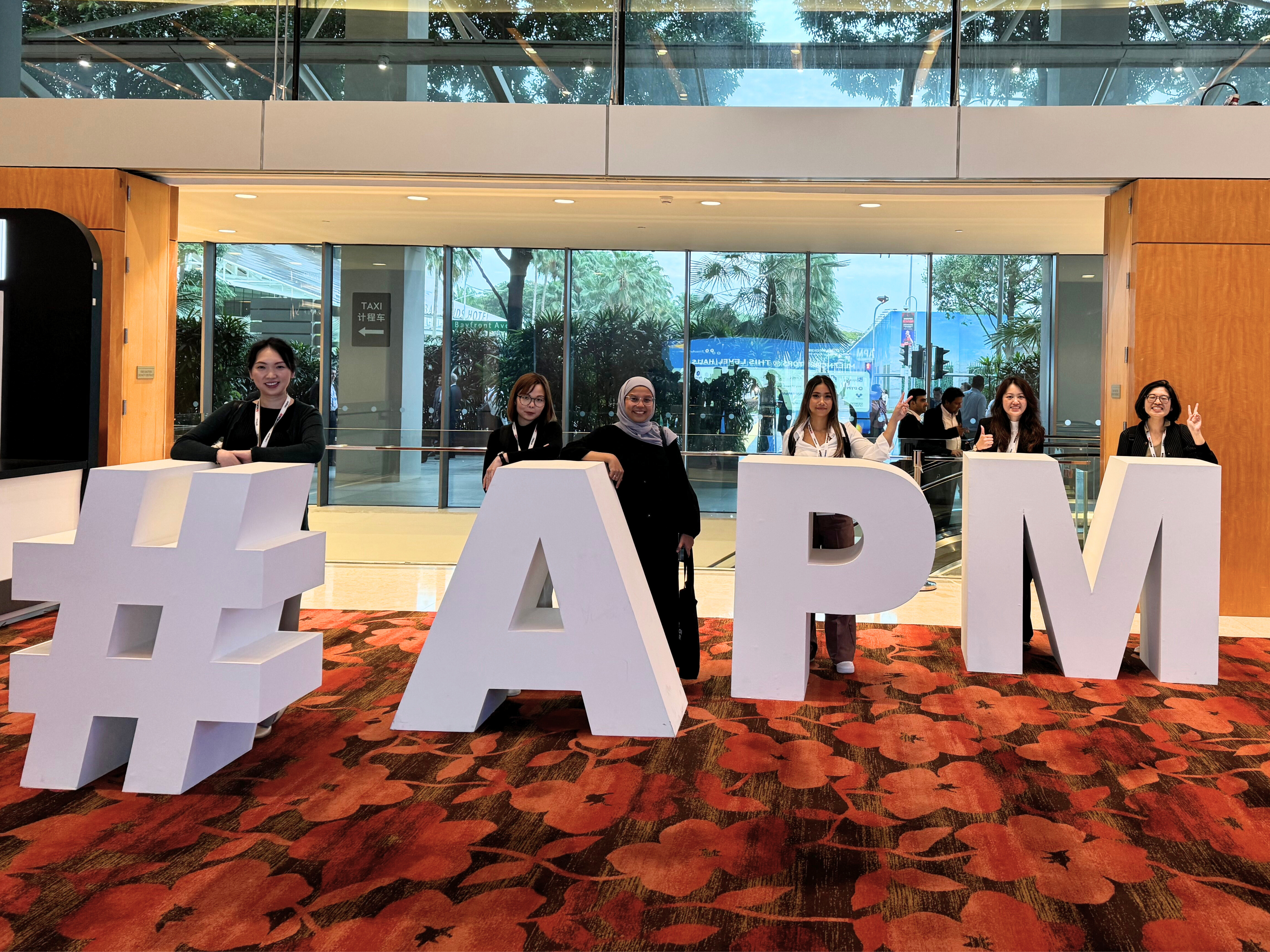Asia Pacific Maritime (APM) 2024, the maritime industry event held in Singapore in March 2024, served as a platform for showcasing cutting-edge technologies and future-focused conversations on sustainability, a topic of paramount importance in a sector traditionally seen as a significant contributor to global emissions. The conference brought together industry leaders from across the globe. APM was held at Marina Bay Sands Conference Centre and saw close to 16,000 attendees over three days. This article delves into the experiences of the communications team behind the scenes, revealing the strategies employed, the challenges encountered, and the valuable lessons learned.
Fifth Ring was appointed as the communications agency for the event. We aimed to position APM as the premier platform for showcasing maritime innovation and fostering discussions on the industry’s future. Behind the scenes, a dedicated communications team worked tirelessly to achieve these goals.
Setting the stage: objectives and initial strategy
The communications team's primary objective was to generate pre-event buzz and boost registrations for APM 2024. To achieve this, we focused on securing media coverage by collaborating with speakers and exhibitors to identify newsworthy angles that aligned with the conference's themes – a key theme being the industry's commitment to a sustainable future. One of the most striking takeaways for the team, many of whom came from outside the maritime sector, was the extent to which sustainability dominated discussions. While concerns about emissions remain, the event served as a powerful platform for highlighting the positive strides being made. Speakers passionately emphasised the industry's efforts to reduce its environmental impact. A statistic that resonated deeply – international shipping, the lifeblood of global trade, accounts for only 3% of global emissions. This reframes the narrative, showcasing the industry's significant contribution to the global economy while acknowledging the ongoing push for further sustainability measures.
Embracing agility: adapting strategies for success
The initial strategy involved crafting personalised media pitches for each speaker and exhibitor. This approach proved effective in building relationships with journalists but became challenging when faced with time constraints as the event was nearing. The team needed to adapt quickly.
The solution came in the form of "mass pitching." Speakers and exhibitors were grouped by expertise under key industry topics aligned with APM's conference themes. Grouping the speakers streamlined the process, allowing journalists to identify potential interview subjects efficiently. The strategy proved fruitful, with journalists reaching out for interviews and byline contributions. This shift exemplifies the importance of remaining agile and adaptable in a fast-paced communications environment.
The power of collaboration: working together for optimal results
Beyond media relations, the communications team's success hinged on solid internal collaboration. Constant communication ensured everyone was aware of potential media opportunities and could offer support when needed. For instance, a team member who interacted extensively with conference speakers could leverage their insights to identify the most suitable industry expert for a specific media request. This collaborative spirit ensured that the team could effectively connect journalists with the right voices, maximising the impact of media coverage.
Beyond the surface: insights from stakeholders
Interacting with diverse stakeholders – speakers, exhibitors, media personnel, and colleagues – provided invaluable insights into the maritime industry's current landscape.
The speakers’ passion and expertise were a constant source of inspiration for the communications team. The speakers’ willingness to share their knowledge enriched media coverage and provided a deeper understanding of the industry's challenges and opportunities. The exhibitors showed keen interest in media opportunities and were eager to showcase their innovations. However, some needed more extensive media exposure, requiring additional support in identifying suitable media angles for their participation. Pre-interview briefing calls were arranged to help sharpen the speakers’ stories and prepare them for their interviews with the media.
The journalists, on the other hand, clearly communicated their needs, allowing the team to match them with the most relevant industry experts efficiently. However, navigating sensitive topics related to the industry's environmental impact demanded a nuanced approach.
A journey of learning: reflections on the experience
The APM 2024 experience was a whirlwind of activity, offering valuable lessons for future endeavours.
Here are some key takeaways:
- Embrace the pressure: While the time constraints were undoubtedly stressful, they also fostered a sense of urgency and innovation within the team. The experience highlighted the importance of thriving in a fast-paced environment.
- The power of 'we': The success of the communications strategy wouldn't have been possible without a supportive and collaborative team. Effective communication, a willingness to share knowledge, and a focus on collective goals were instrumental in achieving the desired outcomes.
- Understanding is key: The project underscored the importance of understanding the diverse priorities of clients, media, and industry experts. This understanding allows for more targeted communication, leading to smoother collaboration and greater success in securing media opportunities.
Looking forward: applying the learnings
The learnings from APM 2024 will undoubtedly shape future communications endeavours. The effectiveness of mass pitching suggests its potential use from the outset in future projects. Furthermore, fostering a collaborative team environment and prioritising clear communication will remain cornerstones of success.
Perhaps most importantly, the experience instilled a deeper appreciation for the complexities and positive strides of the maritime industry, particularly its commitment to a sustainable future.

